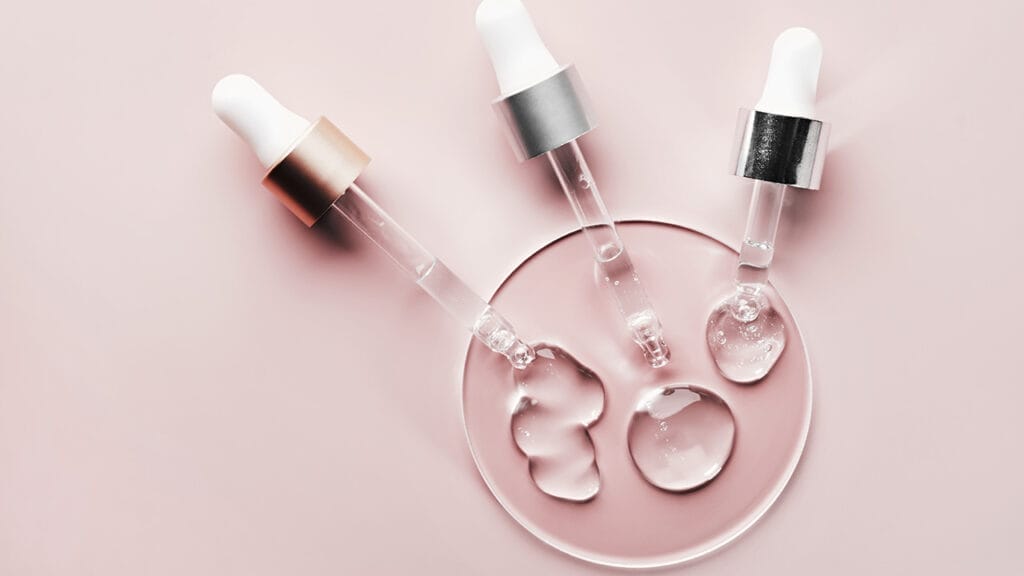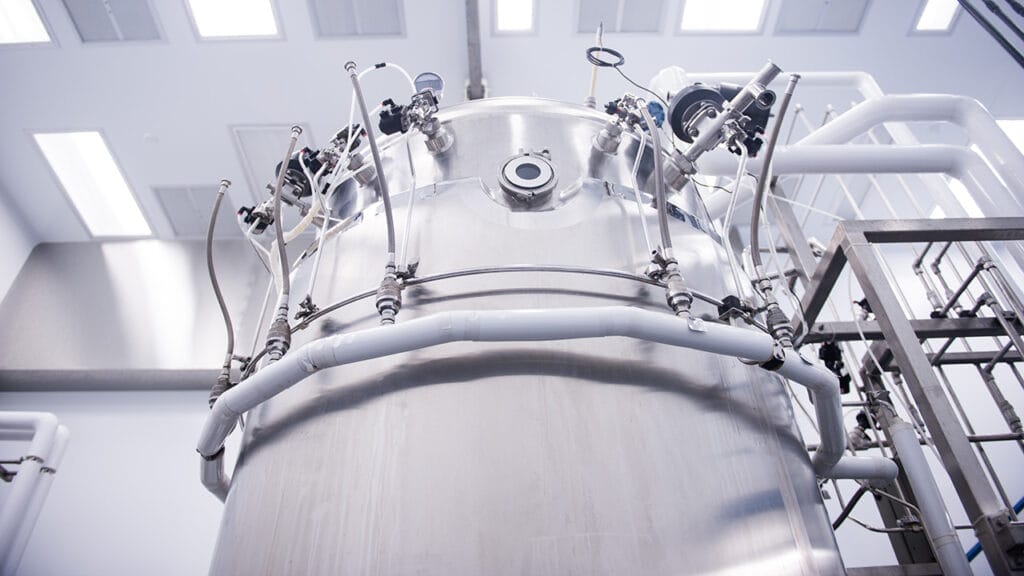Scaling up synthetic biology: challenges & solutions
By Eris Duro, PhD – Senior Consultant, and Marshall Chan, PhD - Consultant
Synthetic biology (SynBio) is a field of science that has been talked about for some years and is now gaining commercial momentum. It employs the engineering of living systems to achieve desired outcomes and with over $25 billion invested in SynBio companies in 2020 and 2021 combined, and more than 17,000 related journal papers published in 2021, the research and development around it is advancing. The recent technological advancements, including DNA sequencing, genetic engineering, omic techniques and data analytics, have reduced costs and enabled SynBio to be applied in various industries. Different SynBio technologies, such as precision fermentation, cell culture and tissue engineering, are being employed to generate novel materials and ingredients in more sustainable and ethical ways by companies such as Eat Just, Amyris and Evolva.
The emergence of SynBio is answering societal calls for sustainable and ethical manufacturing, supply-chain resilience and improving living standards. Precision fermentation has been shown in various contexts to be a sustainable and ethical bioprocess, e.g. production of animal-free dairy protein with 91% less greenhouse gas emission and 96% lower water consumption compared to conventional farming. Bioprocesses allow the production of rare biomaterials from microorganisms, instead of extraction from animals or plants, e.g. production of squalene from precision fermentation rather than extracting from sharks. Similarly, health-promoting plant extracts can now be obtained without recurring to endangered or overharvested plants such as Rhodiola rosea.
Barriers for cost-effective scale-up need to be overcome for SynBio to achieve its potential
There have been relatively few examples of commercialised SynBio products reaching the market, especially in consumer sectors. Most examples are of high-value, low-volume ingredients, e.g. fragrance compounds, certain nutraceuticals or bioactives for high-end cosmetics. However, for SynBio to achieve its potential, especially for sustainability, it must reach mass consumer markets. Cost-effective production at scale is the major barrier. Numerous hurdles have to be surmounted to achieve production volume and cost parity with conventional methods (e.g. petrochemicals or agriculture). The major hurdles include:
- poor productivity at large scale (low yield and titre);
- costly production; and
- lack of infrastructure capacity.
Poor productivity at large scale
Achieving high productivity of bioprocesses at large scale is challenging; indeed, yield and titre often decrease with upscaling for a variety of reasons:
- The inherent variability of biological systems, which becomes more pronounced and difficult to control when scaling up, leads to inconsistent results
- Sensitivity of bioprocesses to environmental conditions (e.g., temperature and pH), which are more difficult to maintain at optimal levels at a larger scale
- Limitations in mass transfer (nutrients, oxygen, waste material) in larger-scale bioreactors or fermentation vessels, affecting the overall performance of the process
- Maintaining sterility is more challenging on a larger scale
- Ineffective downstream processing and product recovery
Due to these complexities and challenges, scaling up SynBio production often requires extensive and multidisciplinary research, optimisation and iterative improvements.
Modelling and simulation are useful and increasingly popular tools in optimising bioprocesses. In the development stage, computational fluid dynamic (CFD) modelling improves bioreactor designs by providing quick validation of new designs on mass transfer uniformity. Simulation can be used to determine the critical parameters of the processes, e.g. temperature, pH or concentration of nutrients, and their optimal ranges for robust operations at different scales. Simulation is also useful in the continuous optimisation of bioprocesses. With the real-time data input from equipment, a digital twin could be created to run multiple scenario simulations to identify the optimised operating parameters. Additionally, sensors and machine-learning models are being developed to improve bioreactor control, which will also expedite upscaling.
Although standard approaches to simulating flow and heat/mass transfer are numerically very cumbersome, Sagentia Innovation has experience of developing more streamlined models that facilitate design optimisation and real-time simulation - (Download ‘How to devise effective simulations that improve R&D performance’ here.)
Other efforts, for instance, by leading SynBio companies such as Ginkgo Bioworks and Geno, focus on using genome mining and advanced genetic engineering to design more efficient enzymes and highly productive metabolic pathways.

Costly production
SynBio production methods struggle to achieve cost parity with the much more long-established and optimised petrochemicals syntheses or agricultural processes.
The cost of growth media in upstream process account for a significant portion of the cost, while the cost downstream processing could in some cases account for more than half of the total cost.
Much of the growth media cost is due to the carbon source, often sugar from crops such as corn or sugar cane. Besides cost, this also raises concerns about supply sufficiency, sustainability and food security.
Much recent research is working on SynBio processes employing more cost-effective carbon sources, such as lignocellulosic waste streams (e.g., agricultural or food waste) or C1 compounds (e.g., captured CO2 from industrial processes). These options enable SynBio processes to be key contributors to the circular economy. Encouragingly, SynBio products with C1 carbon sources are close to commercialisation, e.g., ethanol from Lanzatech and Solein protein from Solar Food.
The cost of growth can also be reduced by using host microorganisms that can grow effectively in lower-cost conditions, e.g., halophiles that can grow in seawater. Wild Microbes is an example of a SynBio start-up working on identifying microorganisms that can make biomanufacturing more cost-effective.
To minimise the cost of downstream processing, researchers could modify metabolic pathways or use an alternative host microorganism to improve the purity or alter the excretion mode (intracellular vs extracellular) of the products. The easier extraction of products from the media broth and simplification of the purification steps could significantly reduce the operation cost.
Although standard approaches to simulating flow and heat/mass transfer are numerically very cumbersome, Sagentia Innovation has experience of developing more streamlined models that facilitate design optimisation and real-time simulation

Lack of capacity
Total production capacity for SynBio technologies, including precision fermentation and cell culture, is less than the expected demands. Much of the previous investment in SynBio focused on the early stage ‘proof of concept’ research and overlooked the urge to scale-up technology development in the latter stage of the value chain. Also, traditional CMOs have targeted high-value, low-volume productions in the pharmaceutical industry. As many SynBio companies aim to produce at high volumes for food and beverage and consumer goods markets. Most of the current facilities can only support bench-to-pilot scale productions but not in demo to commercial scale.
Investment has been injected into the building of production facilities in various SynBio companies and CMOs, e.g., ScaleUp Bio (a joint venture between ADM and Nurasa) planned to open two precision fermentation facilities, Liberation Labs and Planetary raised $20 million for building a 600,000-litre facility in the U.S., and start-up CDMO Cauldron secured $7 million to develop their production platform. However, the increased capacities would still be far from enough in the short term. SynBio stakeholders should seek supporting policies and investment for scale-up capacity.
Developing continuous and automated processes could ensure the maximum operation utility to raise the final yield. Cauldron, for instance, is developing its smaller, continuous and automated manufacturing platform to outproduce larger bioreactors. Alternatively, upgrading the existing facilities with automated equipment could be a quick boost to the capacity.
Conclusion
Numerous synthetic biology companies are working on creating more sustainable products with better performance across different sectors. Most of them face challenges in scaling up their production in technical, infrastructure and feedstocks aspects. With the advancements in SynBio itself and other supporting technologies and investments, these challenges could be overcome.
How can Sagentia Innovation assist you?
With strong commercial and scientific capabilities, Sagentia Innovation can help diverse organisations to take full advantage of the opportunities afforded by synthetic biology in various sectors.
We can help synthetic biology companies with both technical and commercial challenges. We have extensive experience in market-opportunity assessment, shaping value propositions and business models, ecosystem mapping, and identifying partnerships. Our team of engineers, scientists, data analysts and mathematicians can help you overcome technical challenges through process optimisation, modelling and simulation, sensor development, and device/bioreactor prototyping.
For companies who would like to adopt synthetic biology, we can help you identify the best technologies and partners that will accelerate your product innovation from a commercial, scientific, regulatory and ESG perspective. Furthermore, our product development teams can help you formulate new and innovative products using SynBio ingredients and materials.
Contact Us: [email protected]
References
- 2023 SynBioBeta Investment Report
- 2022 Plant-Based State of the Industry Report (gfi.org)
- The Life Cycle of Our Non Animal Protein - Perfect Day
- A fermentation-derived, natural molecule bioidentical to shark-derived squalene used in high-purity pharmaceuticals. - Amyris
- Home (ayanabio.com)
- Wild Microbes
- Using Hybrid Modeling to Generate In-Silico Bioreactor Simulations for Faster Upstream Process Development (sartorius.com)
- Next Generation Bioprocessing: BioContinuum™ Platform | Merck (merckmillipore.com)
- Industrial Case-Study-Based Computational Fluid Dynamic (CFD) Modeling of Stirred and Aerated Bioreactors | ACS Omega
- Cauldron raises AUS $10.5m to expand precision fermentation platform (agfundernews.com)
- Techno-economic analysis of the industrial production of a low-cost enzyme using E. coli: the case of recombinant β-glucosidase | Biotechnology for Biofuels and Bioproducts | Full Text (biomedcentral.com)
- Shrinking the Costs of Bioprocess Development - BioProcess InternationalBioProcess International (bioprocessintl.com)
- LanzaTech
- Solein® - Solar Foods
- Find Precision Fermentation Capacity (newprotein.net)
- Synonym Bio report documents global gaps in fermentation capacity (agfundernews.com)
